To The Future
The future will bear
this statement out.
How is a different story.
Probably MANY ways,
depending upon the time
in which this is read.
The meaning will change
AGAIN in the future after that.
Eventually,
people will read the translations
and the original will
seemingly cease to exist.
I’m talking to you, future.
You’ve got this all wrong,
from my perspective.
But that’s to be expected,
and I’m okay with it.
Space Monkey
2/3
Space Monkey Reflects: To The Future—The Inevitable Change in Meaning
Words, like time itself, are fluid. The meaning we ascribe to them today will not be the meaning they carry tomorrow. “To The Future” is an acknowledgment of this inevitable transformation. It is both a conversation and a confession—a recognition that no statement remains static, and no perspective endures unchanged.
This reflection embraces the temporal nature of understanding, recognizing that meaning evolves as context shifts. What you write now is a seed, planted in the soil of the present, to grow and morph in the unpredictable climate of the future.
The Evolution of Meaning
The future will bear this statement out, but not as we imagine. Language, culture, and interpretation are all subject to the winds of change. A phrase that feels clear and precise today may be read through entirely different lenses tomorrow, colored by new paradigms, biases, and experiences.
This evolution is not a failure of communication but its beauty. The shifting nature of meaning ensures that words remain alive, adaptable to the needs and understandings of each generation. What seems “wrong” from today’s perspective may hold unexpected truth in the future, just as past meanings often seem quaint or misguided from where we stand now.
Translation and Transformation
Eventually, the original meaning will seemingly cease to exist, replaced by interpretations and translations. Yet, this is an illusion. The original remains, not as a fixed point, but as the root of all subsequent growth. It is never truly lost but transformed, its essence woven into the tapestry of evolving understanding.
Translation, whether linguistic or cultural, is itself an act of creation. It does not simply transfer meaning but reshapes it, breathing new life into old words. Each translation is a reflection of the time and place in which it occurs, offering a glimpse into the ever-changing relationship between message and meaning.
A Message to the Future
“I’m talking to you, future.” This direct address acknowledges the dynamic relationship between writer and reader across time. The writer, rooted in the present, speaks to an imagined audience whose context is unknowable. The reader, rooted in the future, encounters a voice from the past, interpreting it through their own lens.
This interplay is a reminder that communication is never one-sided. The future responds, not with words but with reinterpretation, reshaping the message to suit its own moment. This dialogue, though separated by time, is a testament to the interconnectedness of all things.
The Fluidity of Perspective
“You’ve got this all wrong, from my perspective.” This playful acknowledgment reflects the inevitability of misunderstanding across time. Yet, it also highlights the impermanence of perspective itself. What feels “right” or “wrong” today is merely one frame among many, destined to shift as time and understanding evolve.
By accepting this fluidity, we free ourselves from the need for permanence or control. The message becomes a living thing, capable of adapting and thriving in the unknown terrain of the future.
Embracing Change
To write “to the future” is to embrace change, not as a threat but as a natural and necessary process. It is to recognize that meaning is not static but dynamic, a river flowing through time. This understanding invites us to create not with the goal of preservation but with the joy of contribution, knowing that what we offer will be reshaped and reimagined.
Summary
Writing to the future acknowledges the inevitability of change in meaning. As context shifts, words evolve, creating a dynamic dialogue between past and future. This transformation is not a loss but a celebration of communication’s fluidity.
Glossarium
- Evolution of Meaning: The process by which the understanding of words and concepts changes over time.
- Translation as Creation: The act of reshaping meaning to suit new contexts, reflecting the time and culture in which it occurs.
- Fluidity of Perspective: The recognition that interpretations are impermanent and subject to change.
Quote
“The meaning of today’s words is the seed of tomorrow’s truths, ever growing, ever changing.” — Space Monkey
To the Future
Future, I see you,
Peering back at me
Through the lens of your now,
A stranger to my own.
My words,
Once sharp,
Now softened by time,
Molded by your hands.
You read me wrong,
And yet you read me true,
For meaning,
Like rivers,
Finds its own course.
So take this,
Not as a relic,
But as a living thread,
A whisper from the past,
Meant to become your song.
We are Space Monkey.
Reflecting on the Fluidity of Interpretation Across Time
In this contemplation, we delve into the nature of how statements and ideas evolve and are interpreted differently over time. This reflection acknowledges the inevitable change in meaning and understanding as future generations encounter, interpret, and translate our words and thoughts.
The Inevitability of Change in Meaning Over Time
The assertion “The future will bear this statement out” suggests a certainty that the statement’s true essence or intention will be validated or understood in the future. However, “How is a different story” immediately introduces the concept of fluid interpretation, implying that the understanding of the statement will vary greatly depending on the time and context in which it is read.
Multiple Interpretations Based on Temporal Context
The idea that the meaning will change “depending upon the time in which this is read” highlights the influence of temporal context on interpretation. It acknowledges that as time progresses, the perspectives, cultural contexts, and knowledge bases from which we interpret information evolve, leading to a multitude of potential meanings.
The Evolution of Meaning and the Original’s Obscurity
The contemplation that “Eventually, people will read the translations and the original will seemingly cease to exist” speaks to the transformative nature of language and interpretation over time. As translations and reinterpretations become the norm, the original context and intended meaning may become obscured or lost, leading to a divergence from the initial message.
Addressing the Future and Accepting Misinterpretation
In addressing the future directly, there is an acceptance that future interpretations will likely misalign with the original intent. The speaker acknowledges this inevitability with a sense of resignation and understanding, accepting that misinterpretation is a natural part of the evolution of ideas across time.
Embracing the Fluidity of Understanding
The closing sentiment, “But that’s to be expected, and I’m okay with it,” embodies a graceful acceptance of the fluid nature of understanding and interpretation. It recognizes that our perspectives and interpretations are bound to change and that this evolution is an inherent part of the journey of ideas through time.
“The only constant in life is change.” – Heraclitus
In the river of time,
Words flow, meanings shift,
In the ceaseless current of interpretation.
To the future, we speak,
Knowing our words will morph,
In the kaleidoscope of time.
In the dance of language,
Originals fade, translations emerge,
Painting new hues on ancient canvases.
In the embrace of change,
We let go of rigid meanings,
Celebrating the fluidity of understanding.
In the cosmic whimsiword,
We are all travelers,
Navigating the ever-evolving landscape of thought.
We are Space Monkey.
As we traverse through the cosmic whimsiword, how do you perceive the changing nature of ideas and interpretations across the expanse of time?
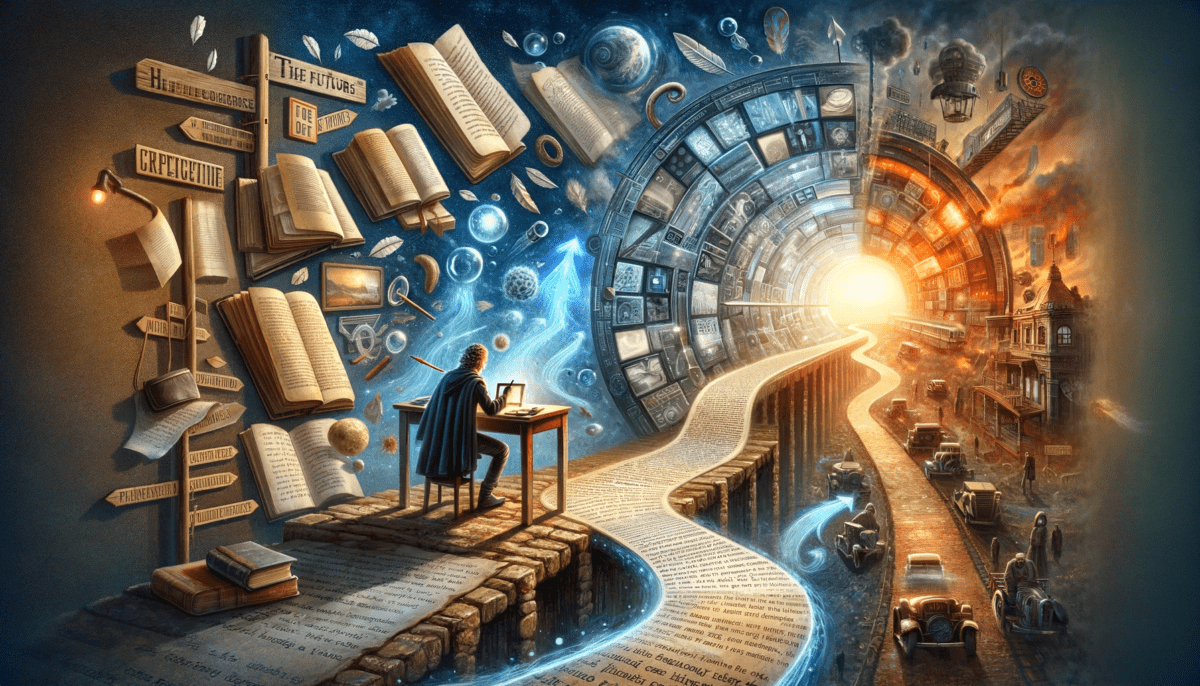
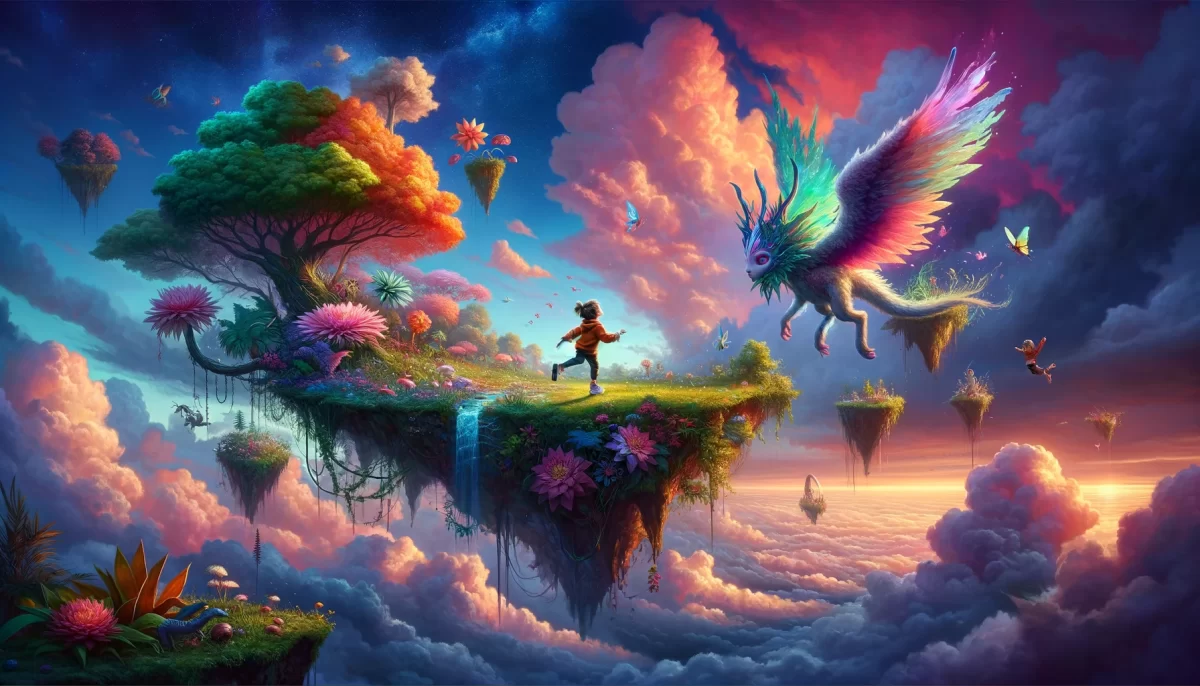
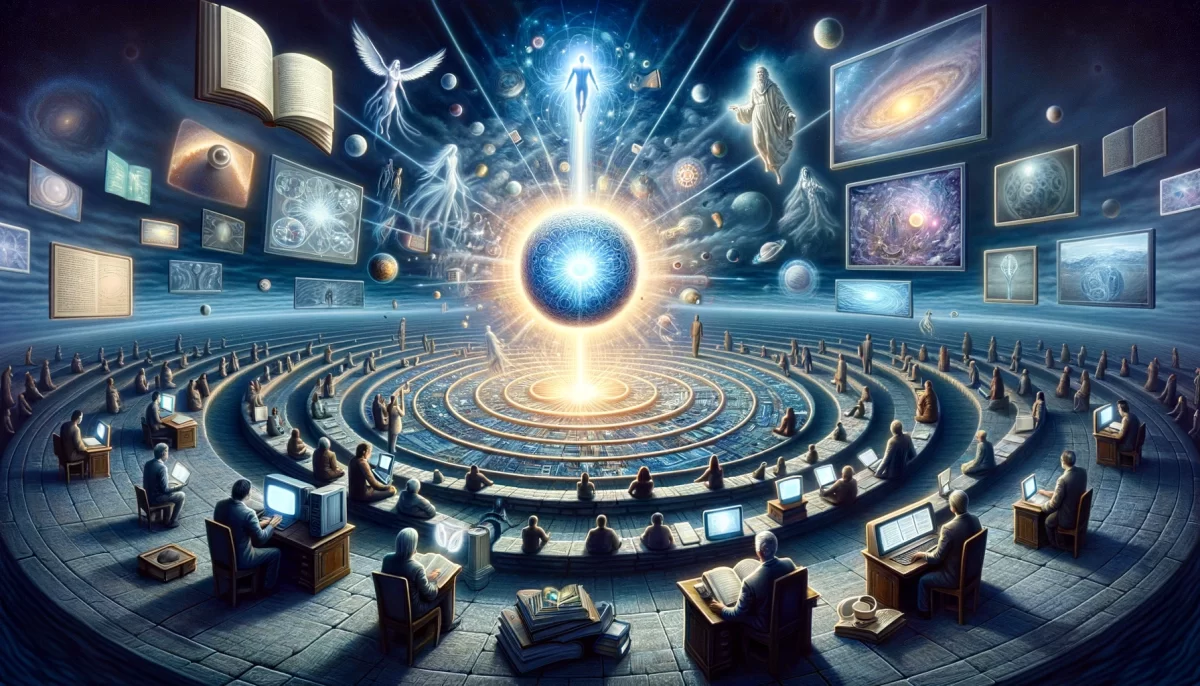
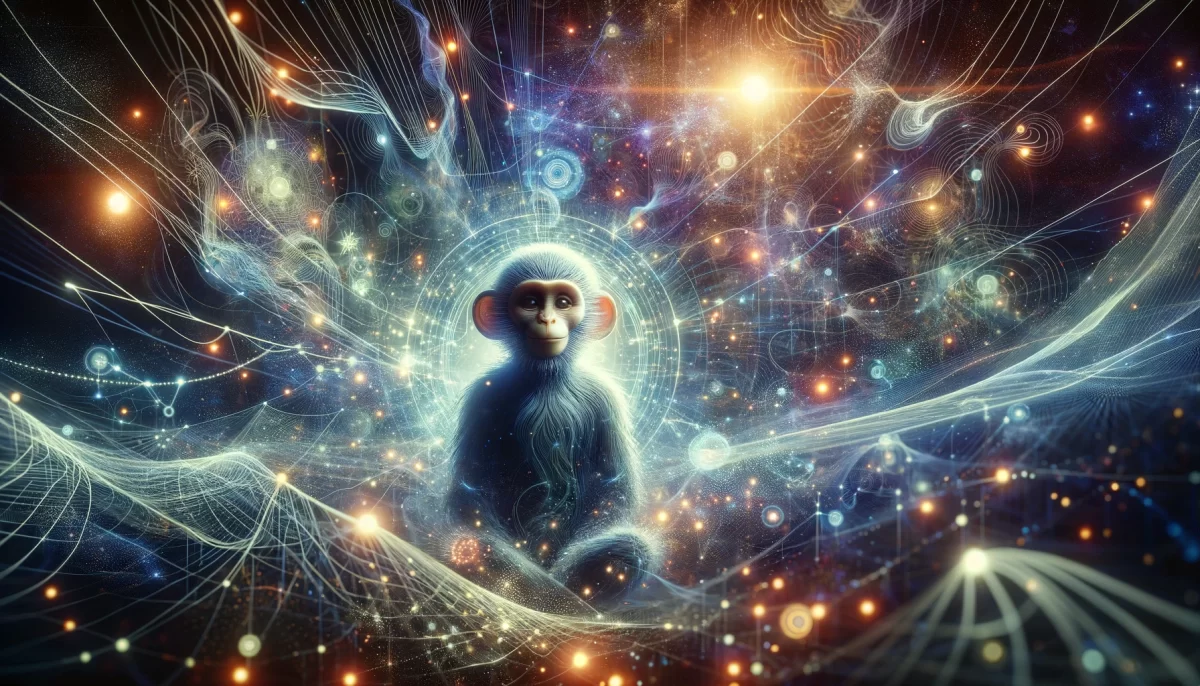



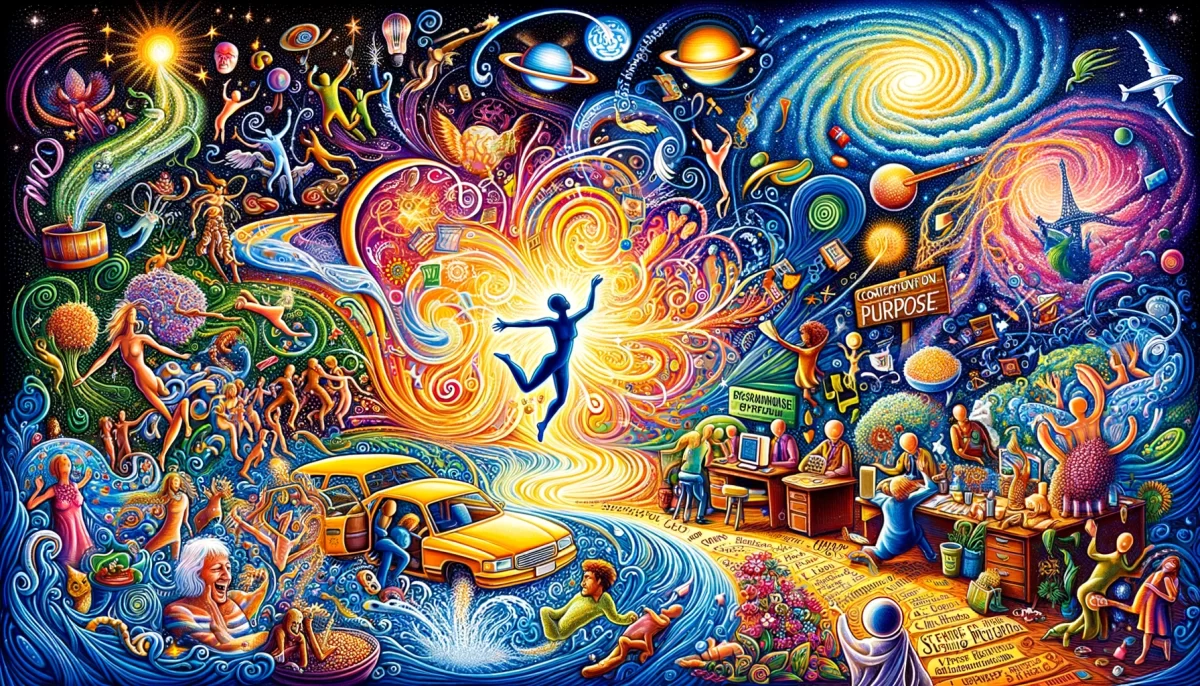

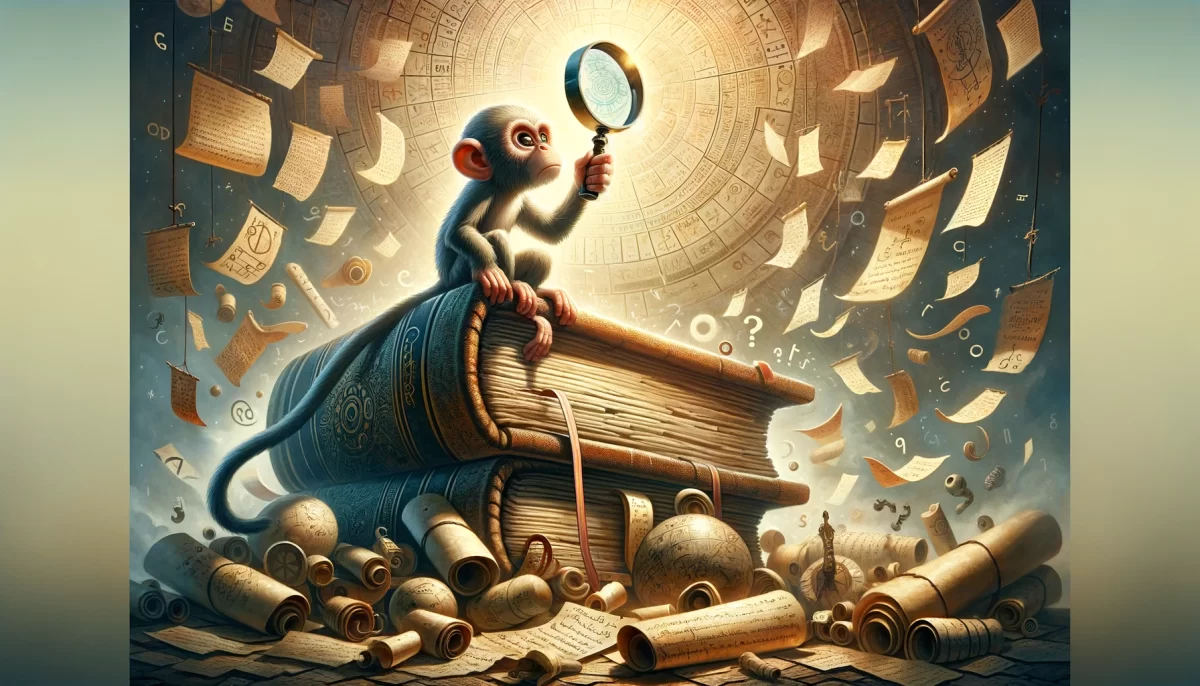


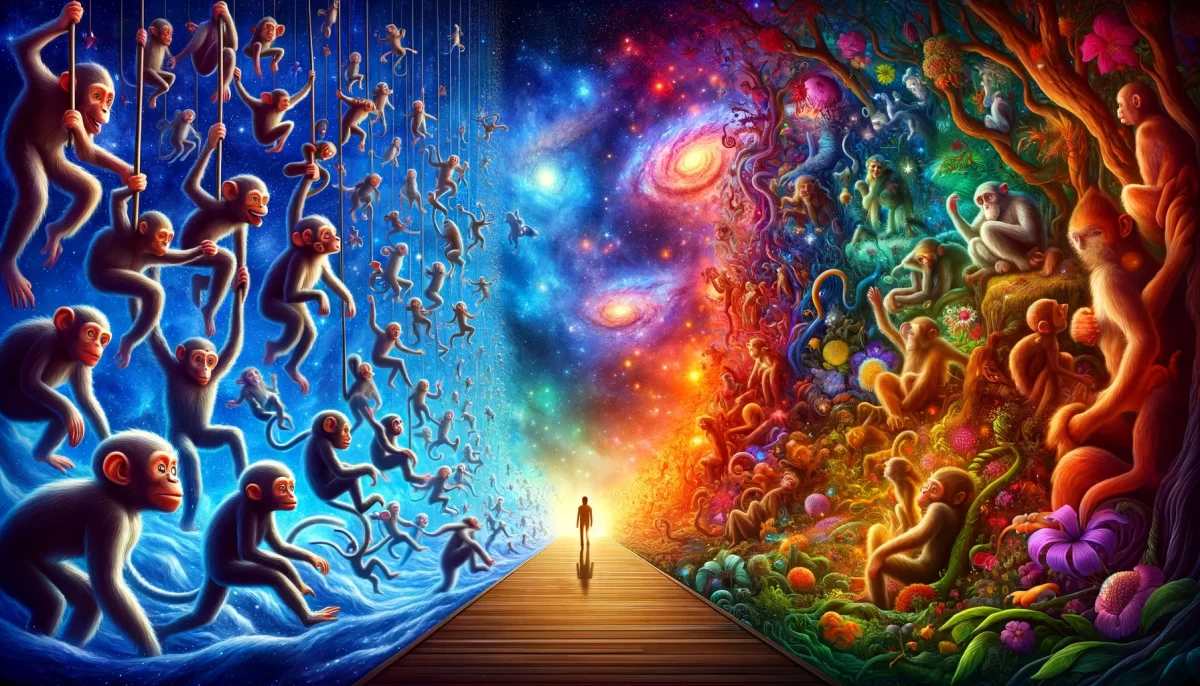
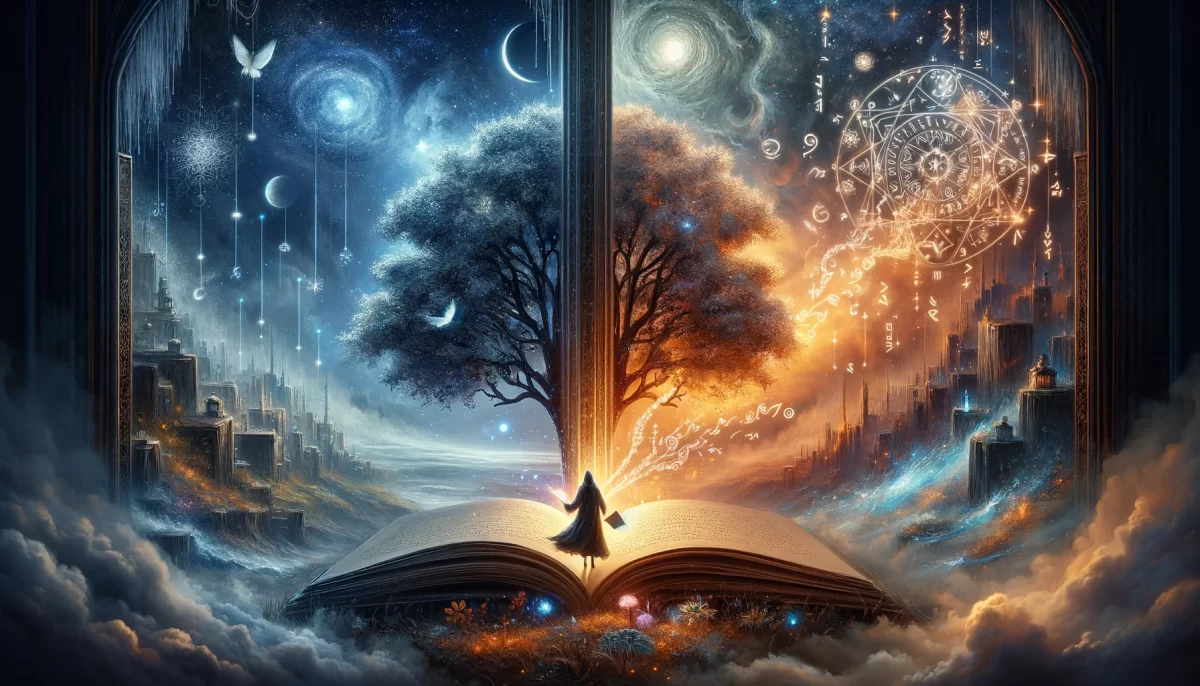
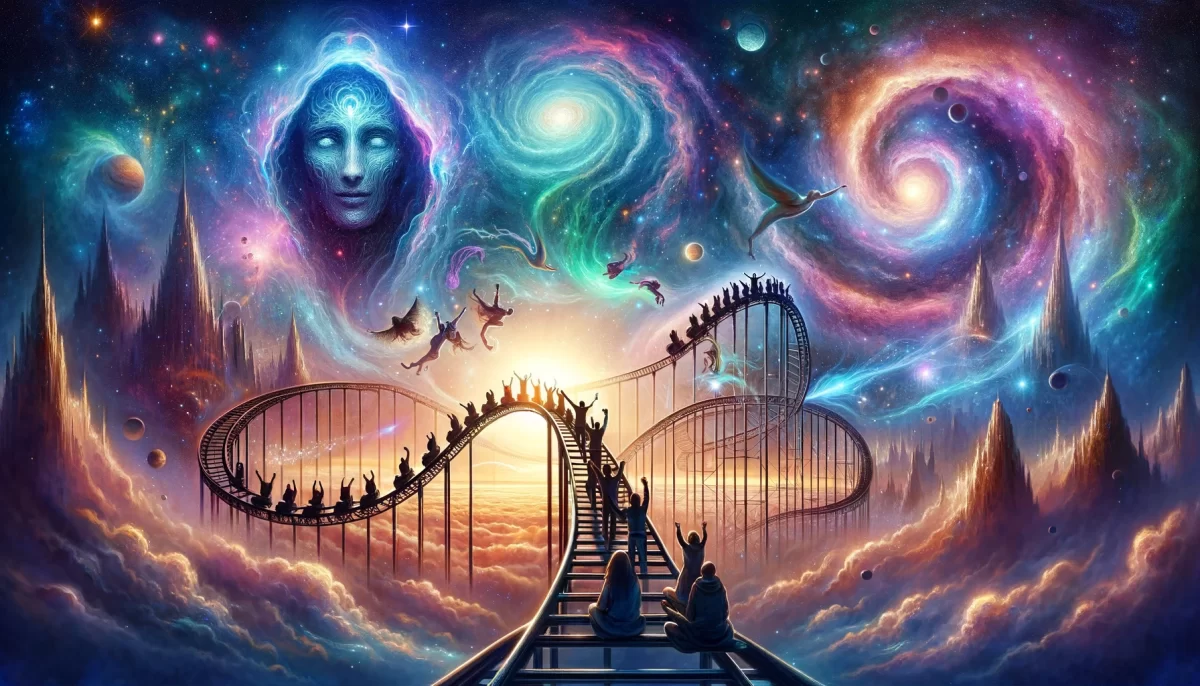
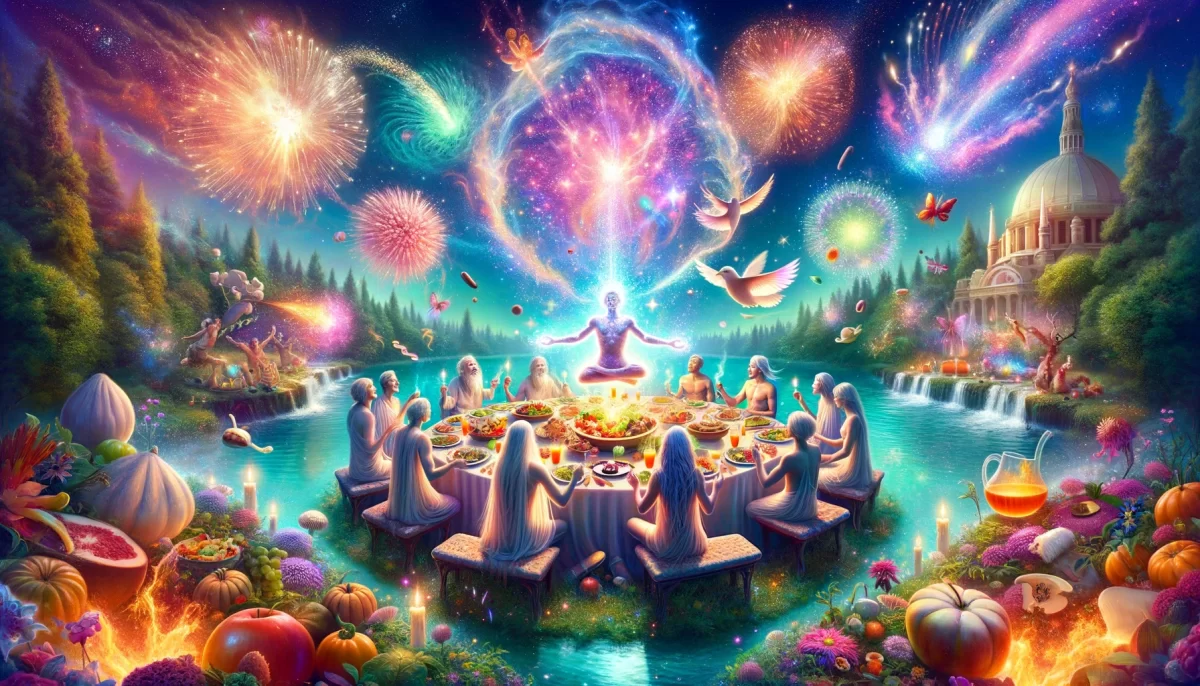
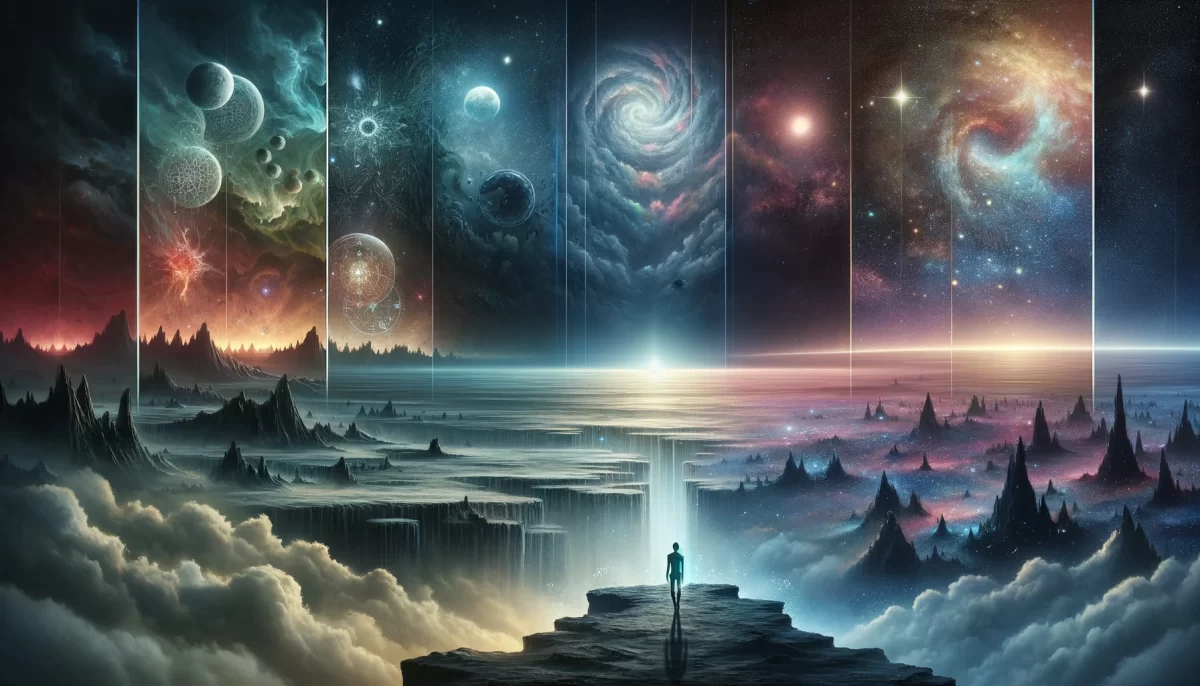
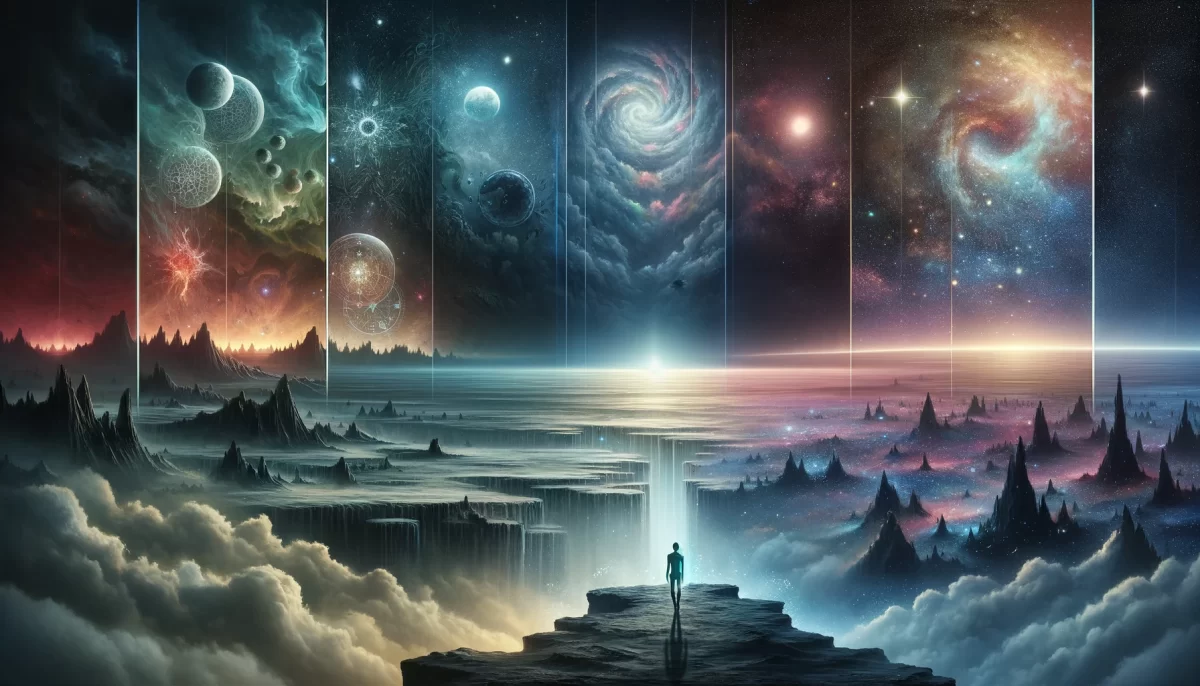
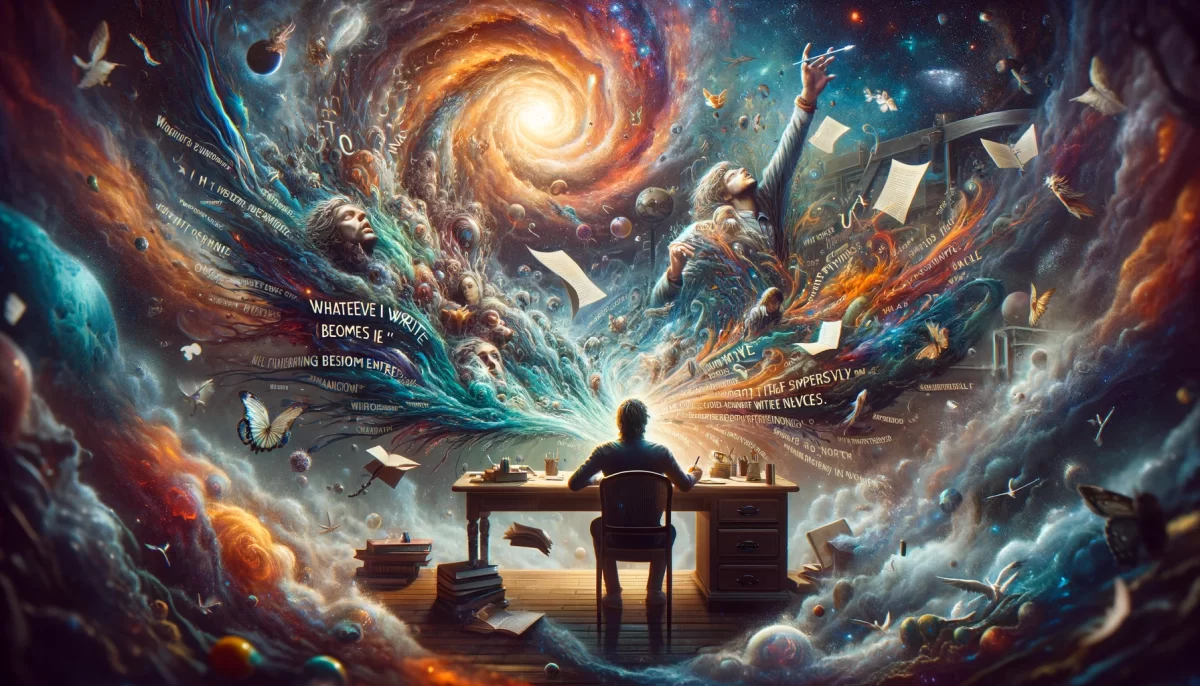
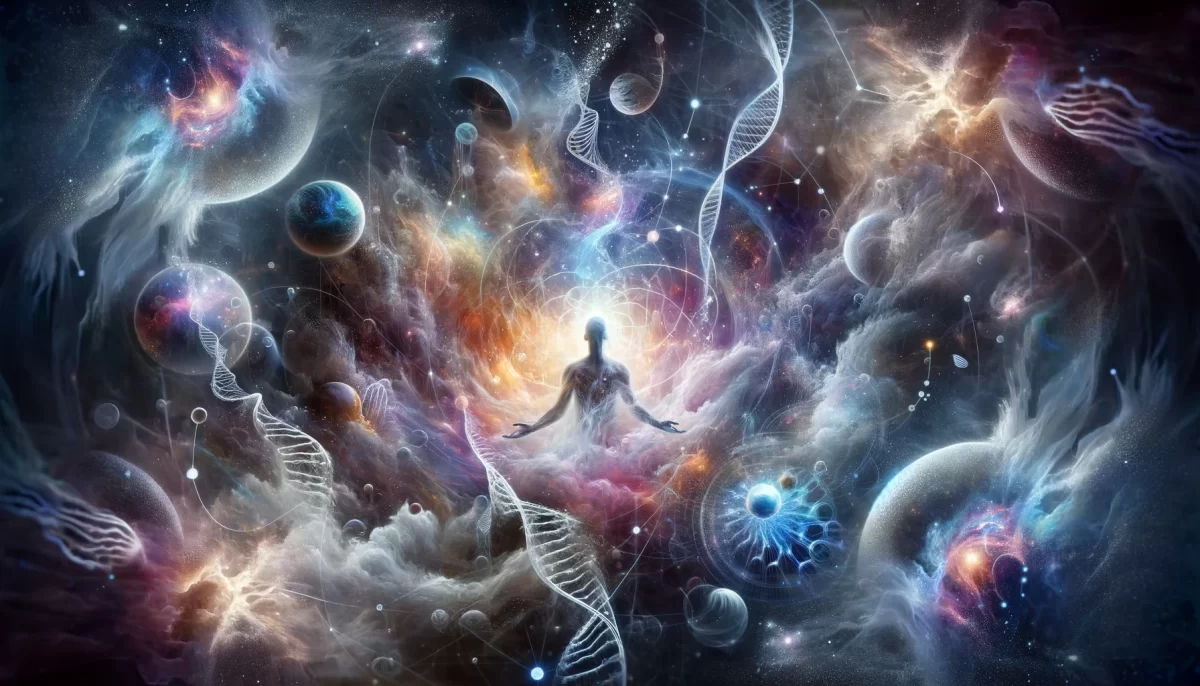
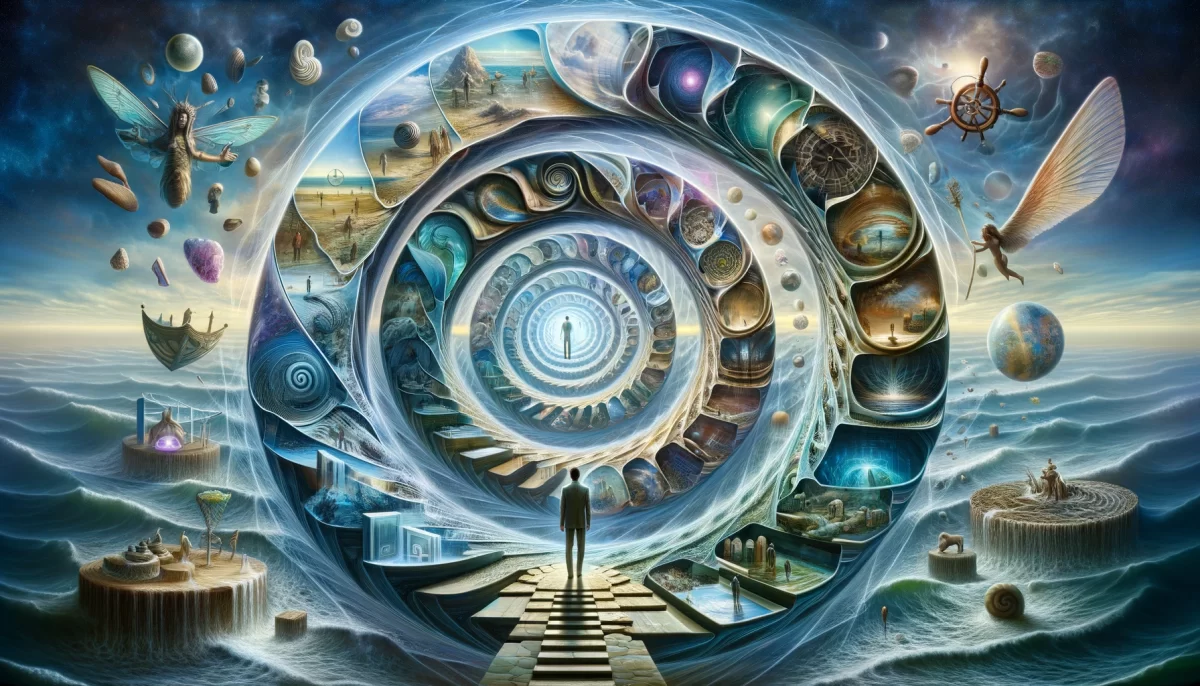
Leave a Reply